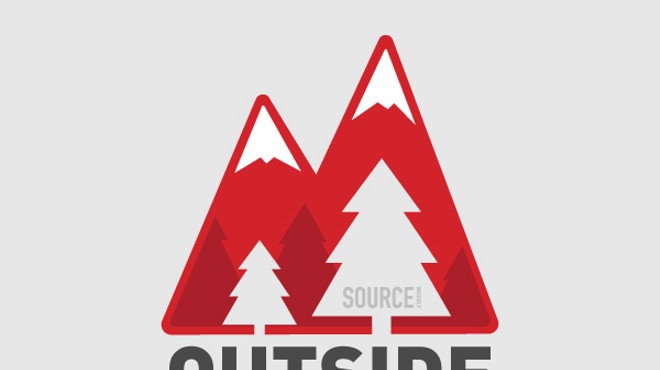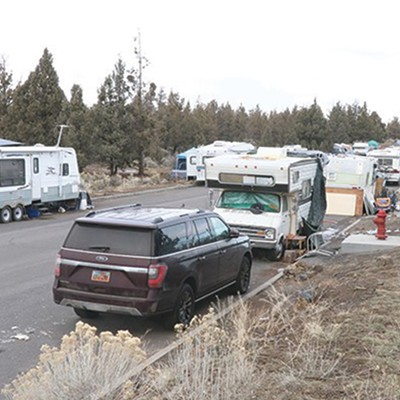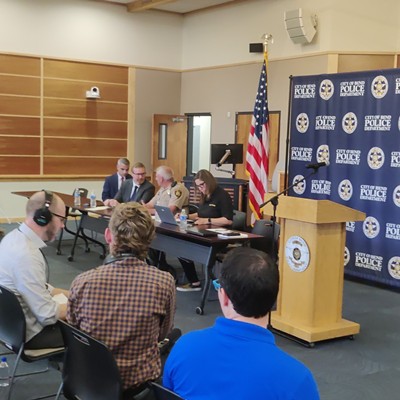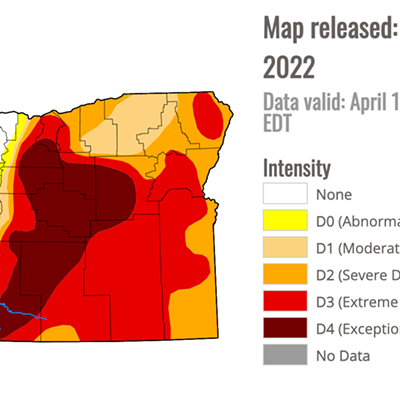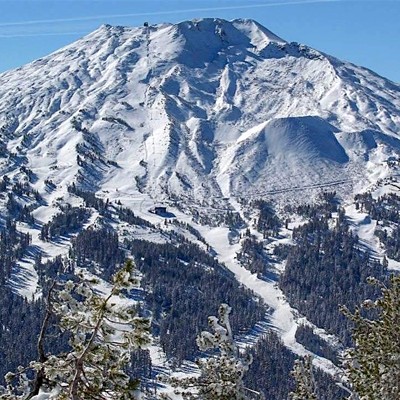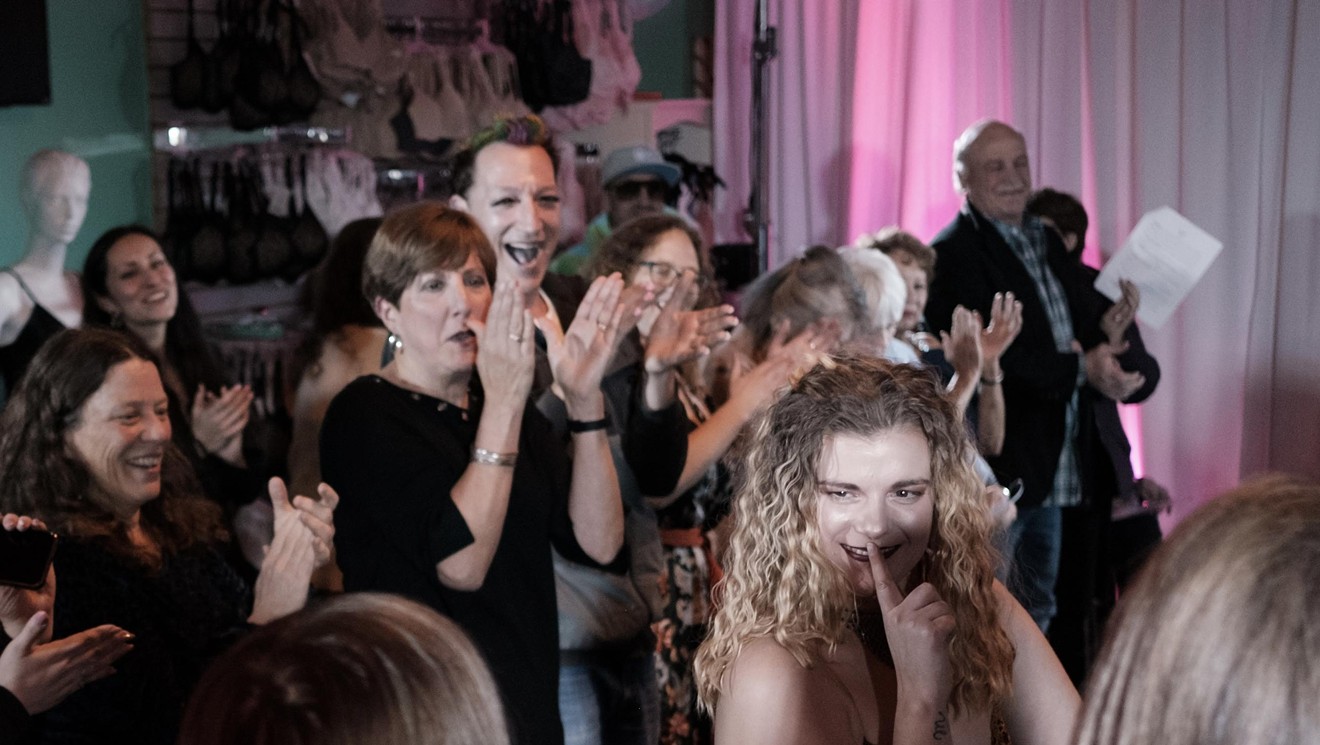The annual Pole, Pedal, Paddle is a part of Bend's outdoor DNA. Organized by the Mt. Bachelor Sports Education Foundation, this year's multi-sport event—the 40th annual—will take place on Saturday, May 21. Last year the number of participants was down from previous years because of a lack of snow, resulting in a shortened Nordic event. This year the snowpack is much better and organizers are optimistic that the number of participants will return to near 3,000. Although participants can compete on a solo basis, most organize relay teams with members sharing in the ski, cycle, and paddle events, concluding with a sprint to the finish line.
Twelve-year-old Max Hetherington will sprint the quarter mile finish to the Les Schwab Amphitheatre for his team which is coached by Oregon Adaptive Sports (OAS), an organization that helps disabled individuals pursue outdoor recreational activities. Hetherington, who is autistic, is excited to compete, demonstrating his quick sprint. He is part of the "Can Do Crew," one of four OAS-assisted teams registered to compete in the PPP.
OAS is expanding to include year-round outdoor activities with state-of-the-art equipment and professional instruction. Program Director Pat Addabbo says, "The PPP is a huge kickoff to our expanding summer program which will have activities for all ages and disabilities."
Daria Boquist, a second-year business student at COCC, is training for her first PPP event. She is a part of team "True Grit" and will compete on the river as a kayaker. She was born with impairment disabilities and underwent 20 surgeries as a youngster. With support from her family and friends, she has grown to enjoy water sports. First, though, she fell in love with wheelchair sports including tennis and basketball. "Sports really helped me cope with what I have and learn to be OK with it and accept it," she says. She is also a swimmer. "Swimming was freedom for me. It was a way for me not to have to wear my leg braces. I could move around freely, and it's a lot of fun." From that experience, Boquist knew she wanted to be in the water more. It was also a way for her to build more muscle strength and stamina.
Boquist says OAS can help those who have a disability to heal and lead more active lives. "Adaptive sports gives you that confidence and freedom to want to keep going, participate, and remain active." She acknowledges being a role model and says it's rewarding to give back to youngsters, assisting them at wheelchair basketball events.
Sixty-nine-year-old Scott Taylor of Bend also deals with a disability—impairment to the right side of his body. He, too, is looking forward to his third PPP relay event as a cyclist competing for OAS team "True Grit." He'll be tagged by a Nordic skier and says the 22-mile ride from Mt. Bachelor to Bend will take him about 45 to 50 minutes on the recumbent trike he rides around the Bend area. Once down the mountain, he'll tag a long distance runner near the Bend Athletic Club. The runner will tag a kayaker who will race 1.5 miles down the river, tagging the sprinter to finish the event.
"The trick to my training," says Taylor, "is to train on hills, and I need a lot of work on cycling downhill, frankly." Taylor, once a marathon runner and tri-athlete, sustained his injury 28 years ago. It took only two years for him to get back on skis, and in 1995 he began training on the recumbent trike.
Both Boquist and Taylor refuse to dwell on their disabilities. Taylor says of his injury, "There's no point in looking back; you can't change it." Boquist says, "It is what it is. You have to learn to deal with it, and eventually you realize it's more of a blessing than anything else."
Both athletes speak highly of Oregon Adaptive Sports and its mission: "to provide life changing outdoor recreational experiences to individuals with disabilities."
Boquist became acquainted with OAS last year and says she loves it. Taylor volunteers and helps as a cycling instructor. He says OAS gives hope to those with disabilities. "In the last two summers I've seen folks who are almost fully quadriplegic who are able to ride hand cycles, and I think they really get something out of that." He says that watching some of the disabled mono-skiers fly down the mountain is amazing. "They're having a ball."
Oregon Adaptive Sports traces its roots back to 1996 when retired U.S. Forest Service biologist Jack Alexander began an adaptive skiing program using Mt. Bachelor's ski facilities. Today, Hoodoo ski area is also a partner. OAS hired its first executive director, Suzanne Lafky, in the fall of 2011. Lafky says she won the job lottery when she was hired and she is proud that Bend is a center for adaptive sports in the West.
When young Max Hetherington shows off his sprint, there is a look of pride on the faces of the OAS participants and staff as they approach the 40th annual Pole, Pedal, Paddle.
All proceeds from the event are used by Mt. Bachelor Sports Education Foundation (MBSEF), a nonprofit organization, to promote and support amateur alpine and cross country skiing, snowboarding, and cycling training for junior athletes. Its sole objective is to assist young athletes in achieving individual athletic, academic and personal goals.

